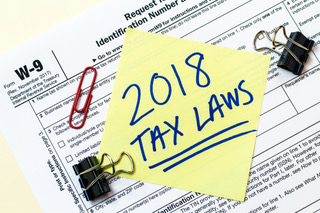
What could be better than cash? Cash is king, right? It warms your pocket and always looks hot on TV when C-notes are expressed after a quick lick of the thumb. But in the not so exciting world of accounting, Cash is best left in the bank and Accrual is the cool way to go. Let the Nerd explain.
Cash Basis accounting is the simplest form of accounting. Revenues are recorded when received and expenses are recorded when paid. But does that really tell you the whole story? Who owes you money and how much do they owe? How much do you owe your vendors? How much of what you think is income is not because the trips you collected on do not operate until next month? Did you have net income in that dreadful month you wrote the big insurance check even as your checking account took a nose dive? You may have, and the answer to knowing how lies in the manner of your accounting.
Merriam-Webster’s definition of accrual: “relating to or being a method of accounting that recognizes income when earned and expenses when incurred regardless of when cash is received or disbursed.”
Accrual Accounting is a little more work, but it provides better information from which to run your company. Yes, we at BUSBooks can assist with that. And once you set it up your bookkeepers can easily follow the process.
Key accounts that are involved with accrual accounting are accounts receivable, prepaid insurance, prepaid expenses, accounts payable, customer deposits, and accrued expenses. These accounts help track the revenues and costs that apply to a specific period. This allows your financial reports to reflect how your company is performing NOT just the effects of your back accounts.
For example, some expenses are significant and only paid once or twice a year. These heavy hitters may include vehicle insurance and registration, property taxes, and workers comp policies. Accrual Accounting equally distributes these expenses throughout the entire life of the policy, fee or tax. If you use the Cash Basis accounting method, the expenses paid only one or twice a year only effect the time period in which they are paid and therefore distorts your actual net income.
Accounts Payable (A/P) and Accounts Receivable (A/R) are important balance sheet accounts used in Accrual Accounting. The A/P records the amount of money you owe your vendors at the close of the balance sheet, most likely the month end. The goods and services are expensed in the period they are received, and if not paid in that same period, are recorded in the payable account where they remain until paid. On the balance sheet the A/P is a current liability.
The A/R records amounts earned and billed, but not yet paid to you at the close of the period. Deposits and payments received by your company for work not yet performed at the close of the period reduce A/R if recorded in the same account. This money is not yet revenue, and therefore does not affect the period’s net income. These accounts are current assets on the balance sheet.
Most companies within our industry have their books already set up on an Accrual Basis. Those that do not eventually need to change over when securing bus loans or lines of credit, or when they attempt to sell the company. And to understand how your company is really performing, the Accrual Basis of accounting is a must.
So how does Accrual Basis accounting interact with your income taxes? It depends. In general, companies with revenues less than $25 million in average revenues over the last three years can use the cash method for reporting income taxes. Many companies and businesses will use this method for reporting for income tax even if they maintain their books on accrual basis. Which method to use for income tax reporting is a separate decision. We at BUSBooks can help you analyze your situation and provide recommendations for your company.
Let us at BUSBooks help you achieve Accrual Basis financial reporting to help manage your business.! Together we can make accounting more meaningful.
Written by Tracy Fickett, CPA and Peter Shelbo, Veteran Bus Operator
BUSBooks is a unique CPA accounting firm dedicated to the motorcoach industry.

 This time of year, you can count on a few things…the Superbowl countdown is on, the Rose Parade is not rained out, and YOUR TAXES will need to be filed soon. As your company prepares for its tax return, here’s a few things to keep in mind.
This time of year, you can count on a few things…the Superbowl countdown is on, the Rose Parade is not rained out, and YOUR TAXES will need to be filed soon. As your company prepares for its tax return, here’s a few things to keep in mind. There was a time when I needed to convince bus lenders that I was a worthy risk and needed to grow the fleet. During those early years the challenge was overcoming tight cash flow and a less than stellar payment history. Paying corporate income tax was not an issue as we continued to generate losses carried forward. Later the company matured and prospered, and as a result the earlier asset created tax losses disappeared. When a company and its bottom line are healthy, you will probably find yourself paying taxes.
There was a time when I needed to convince bus lenders that I was a worthy risk and needed to grow the fleet. During those early years the challenge was overcoming tight cash flow and a less than stellar payment history. Paying corporate income tax was not an issue as we continued to generate losses carried forward. Later the company matured and prospered, and as a result the earlier asset created tax losses disappeared. When a company and its bottom line are healthy, you will probably find yourself paying taxes.
